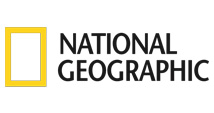How can we help to save the rhino?
Project & Pod News / 19 September 2018
It's World Rhino Day on September 22nd so it's a perfect opportunity to write about these amazing creatures and our fantastic projects that involve working with them!
The rhinoceros (scientific name Diceros Bicornis) is a pretty unique animal. Identified by their wide body, large heads and, of course, their horned snouts, rhinos have been a consistent part of what many envision when they picture the Sub-Saharan landscape. But did you know that there are actually five species of rhino – and three of these are not native to Africa! These species are:
- White
- Black
- Sumatran
- Indian
- Javan
The latter three of these species are native to South and Southeast Asia.
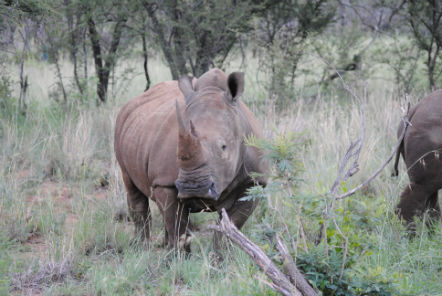
Unfortunately, over the last 100 years, the number of these amazing creatures has dramatically diminished due to poaching for their horns for traditional medicines and a significant loss of habitat. According to Save the Rhino, there was an estimated figure of half a million rhinos across Africa and Asia at the turn of the 20th century – today, there are just 29,000 left in the wild.
As many of us are aware, the black rhino is one species of rhino that has faced near extinction. The population of the black rhino has been in dramatic decline over the last 100 years – according to WWF, between 1960 and 1995, black rhino numbers dropped by 98% to less than 2,500!
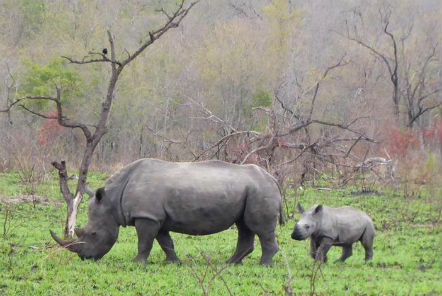
However, it is not all doom and gloom for our horned friends – thanks to persistent conservation efforts across Africa, black rhino numbers have doubled from their historic low 20 years ago to between 5,042 and 5,455 today. It is the work of dedicated conservation teams who have contributed to the protection of this incredible species.
At Pod Volunteer, we work with two remarkable conservation projects in South Africa, our Kruger Conservation and Big 5 Conservation projects. At these projects, volunteers assist the local teams in protecting and contributing to the research of the animals who call these reserves home – including both black and white rhinos.
Last year, our Big 5 Conservation project was able to provide funding for 3km of electrified game fence which allowed another 3000 hectares to be incorporated into the reserve. This resulted in the re-introduction of a healthy population of black rhino into the reserve, the first time black rhino have been seen in the province for over a hundred years (and Iona from the Pod Office was lucky enough to spot one when she visited!).
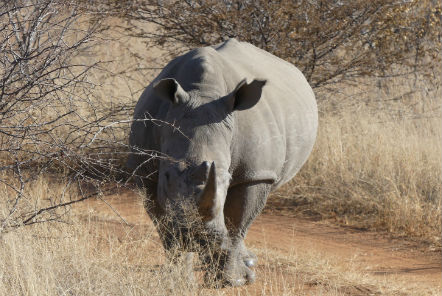
Additionally, in an effort to stem the rhino-poaching tide, the team were able to assist and provide funding for local veterinary services to implement the ear notching of five white rhinos for identification and monitoring purposes.
At the reserve our Kruger Conservation project is based on, local teams worked with WWF to introduce 19 black rhinos into the eco-system. To protect them, the reserve has implemented the world’s first majority female anti-poaching team - the Black Mambas Anti-Poaching Unit! This dedicated team work under the concept of the "Broken Window" philosophy - this is the idea that by making an area the most undesirable, most difficult and least profitable as possible to poach in, the poaching of species is dramatically decreased . Within the first 11 months of working in the reserve, no rhinos were poached. In 2017, the unit had assisted in a total of 6 arrests and identified and destroyed 29 poachers’ camps and 7 bush meat kitchens..
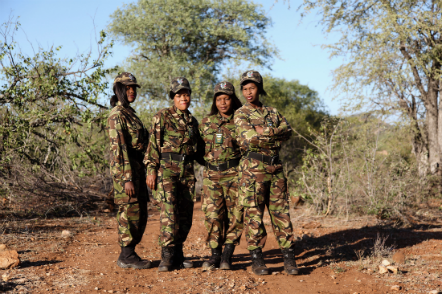
While the population of rhinos is still not in the all clear – black rhinos are considered a critically endangered species – the conservation efforts of teams like our Big 5 Conservation and Kruger Conservation projects have definitely been an integral part of saving these incredible creatures from the brink of extinction. Without the support of volunteers at these projects, the teams simply would not be able to provide the data for the important research they carry out, so we at Pod Volunteer are so proud to be supporting such vital conservation projects!
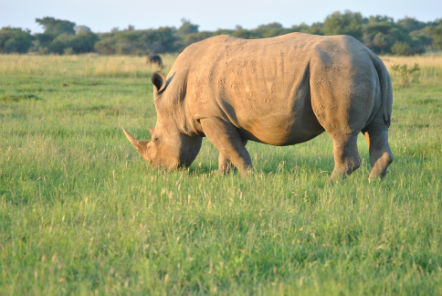
Click to find out more about how the work volunteers assist with at the Big 5 Conservation and Kruger Conservation projects is so valuable to protecting the rhino and the other animals who call these reserves home.






